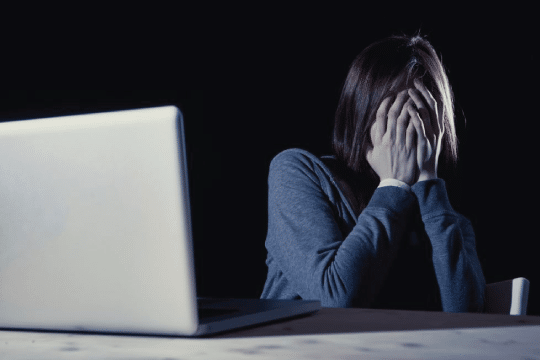Social media can a wonderful tool for connecting communities and spreading news. But there is also vicious side to it that has been on the rise. Cyberbullying can be a difficult term to define. The definition includes mean messages or threats, spreading rumors, posting hurtful things online, sexting, or taking unflattering pictures and spreading them around through social media. It can be damaging to teens and adolescents and can lead to anxiety, depression, and even suicide. Over half of adolescents have been bullied online in some form or another. We understand the seriousness of this issue and are grateful to see lawmakers making progress to stop these types of hate crimes.
But, teens aren’t the only ones who are suffering.
According to a survey on the subject by the Pew Research Center, nearly 75 percent of American adults have witnessed online harassment with 40 percent seeing the brunt of that cyberbullying. If you take a look at any news story, public post, or image shared on Facebook, you are likely to see the same immature, disrespectful, mean language you might expect to come from a teenager, but this time it’s from adults.
For example:
Patrice Bendig recently wrote an article about her online dating experience that went viral on Facebook, being liked or shared over 30K times. At first, she later wrote, the comments were positive. But then, comments like the following started to roll in:
Instead of getting on a roller coaster she needs to get on a treadmill”
“You like Hulu with your cat, and….Muppets. Your over weight and dress like a PTA mom from Kansas. And you wonder why you are having trouble getting dates? Is this like some performance art piece?”
“Sorry to be honest but overweight, unflattering pics, generic profile with homebody interests, seemingly low self esteem, and a pet cat? There’s so many more choices for men in any metro area who have some game, I guess you need to lower your standards or move to a place where there’s less competition?”
“From the look of her, big-girl panties is an appropriate description”
“Yeah, guys who don’t like fat entitled girls are dumb.”
“The reality is – you’re fat. Doesn’t matter how great your personality or cat is. No one wants to deal with an unfit person headed for knee and back problems, diabetes and heart disease. You’re as bad a risk for a mate as you are for health insurance.”
Nobody deserves to hear or read things like this. Yet somehow, the semi-anonymity of Facebook and online comment sections have given people “permission” to say terribly unkind things.
So why do people do it? Why would anyone write something mean and click “post?” Psychologists have found that the lack of face-to-face communication in social media decreases empathy. A study published in August 2015 in the journal “Computers in Human Behavior” showed that cyberbullies typically have three personality traits that often occur together. These traits are called the “Dark Triad”: Machiavellianism, which is a tendency to manipulate other people for their own good; narcissism, an obsession with self and feeling that they are better than other people; and psychopathy, an attribute that includes a lack of empathy and a greater tendency to take risks. This dangerous combination can lead people to do things online that they wouldn’t do in person.
So, what can you do about it?
If you are a victim of merciless comments or harassment online, it’s best to ignore the perpetrator. Responding may add fuel to their fire and encourage them to keep going. Next, block, report, and flag any and all content from the cyber bully. Don’t delete the evidence permanently. Reporting the content instead of simply deleting it sends a strong statement that you won’t accept this type of internet behavior. It also allows the social media site to review the content and can help them either deactivate an account or block a person from a page.
Check your state laws to see if the police should get involved. In many situations, if the perpetrator is ignored, the bullying will stop.
If you see cyberbullying happening, post something positive and stand up for the person being bullied. Be the positive voice. “It is a powerful show of support to the victim and of rebuke to the bully,” says Michelle Ferrier, an associate dean for innovation at the Scripps College of Communication at Ohio University.
In conclusion, we love this quote from cyberbullying.org:
“In sum, it can be difficult to hold bullies accountable for their actions (for both adolescents and adults). In a country such as ours that values free speech so highly, many people genuinely believe they can say whatever they want, to whomever they want. We know that is not true, but it isn’t clear where exactly the line is. And just because we can say certain things, doesn’t mean we should. It’s no wonder that many teens are wrestling with this problem—they see the adults in their lives saying mean and nasty things to others on a regular basis. Do your part to model appropriate behavior and address any hurtful language when it comes up. The kids (and other adults) in your life will hopefully see it, remember it, and act in the right ways.”
